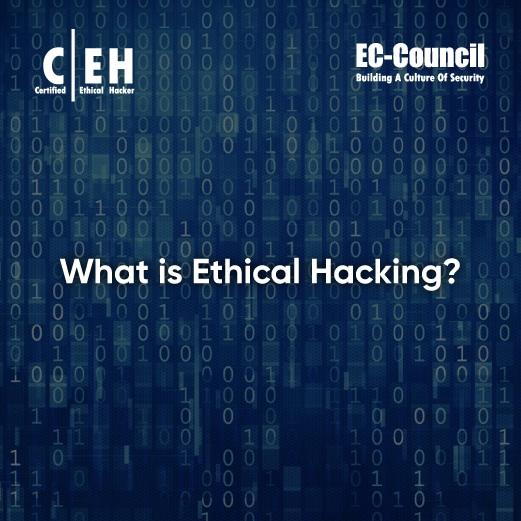In a world increasingly dependent on digital landscapes, the specter of cyber threats looms larger with each passing day. Have you ever wondered just how safe your personal data, corporate secrets, or even national security might be from unseen predators lurking online? The anxiety is palpable, and the stakes couldn’t be higher. Enter ethical hacking—a term that might sound paradoxical but holds the key to fortifying our fragile cybersecurity infrastructure. How do these so-called “good hackers” operate, and can they truly shield us from the relentless cyber onslaught? Join us as we delve into the fascinating realm of ethical hacking, uncovering the techniques, ethics, and real-world impact of these modern-day digital defenders. Whether you’re a tech professional, a business owner, or simply a concerned netizen, this exploration promises to equip you with the knowledge to navigate today’s perilous cyber seas.
Table of Contents
- Understanding Ethical Hacking: The Foundation of Cyber Defense
- The Role of Penetration Testing in Identifying Vulnerabilities
- How Ethical Hackers Stay Ahead of Cyber Criminals: Techniques and Tools
- Building a Robust Security Culture Through Ethical Hacking
- Case Studies: Real-World Successes and Lessons Learned
- Ethical Hacking Certifications: Pathways to Professional Recognition
- Future Outlook
Understanding Ethical Hacking: The Foundation of Cyber Defense

In the digital age, **ethical hacking** has become crucial for safeguarding sensitive data and maintaining a robust cyber defense. Ethical hackers, also known as white-hat hackers, identify vulnerabilities in systems before malicious hackers can exploit them. Imagine a bank hiring a professional thief to test their vault’s security. Although it sounds counterintuitive, this practice significantly enhances security measures. For instance, in 2013, Yahoo enlisted ethical hackers who discovered critical flaws that could have compromised millions of user accounts. This proactive approach enabled Yahoo to patch these vulnerabilities swiftly, avoiding potential disasters.
**Real-world examples** highlight the importance of ethical hacking. In 2016, Facebook’s bug bounty program awarded $15,000 to a hacker who discovered a remote code execution vulnerability. Such initiatives not only encourage ethical hacking but also provide companies with real-time feedback on security loopholes. The **case of Tesla** is another notable example; the company frequently invites hackers to test its car systems at hacking conferences, thus ensuring their vehicles remain secure from cyber intrusions. By fostering a culture of transparency and continuous improvement, organizations can stay ahead of potential threats.
**Hyperlinks** to credible sources further underline the significance of this practice. For example, a [Cisco study](https://www.cisco.com/c/en/us/products/security/what-is-cybersecurity.html) reports that companies using ethical hacking techniques experience fewer breaches. Similarly, [IBM Security](https://www.ibm.com/security) revealed that businesses adhering to such methodologies save an average of $3.86 million per breach. These statistics firmly establish ethical hacking as a cornerstone of modern cybersecurity.
- HackerOne offers insights into running effective bug bounty programs.
- Explore [OWASP](https://owasp.org) for comprehensive resources on application security.
- The [Electronic Frontier Foundation](https://www.eff.org/issues/cybersecurity) advocates for ethical hacking as a means to preserve digital freedoms.
**Quotes from industry leaders** add weight to the narrative. As Kevin Mitnick, once one of the FBI’s most wanted hackers turned security consultant, states, “The firewall is only as secure as the people who are managing it.” This underscores the necessity of skilled ethical hackers who continually test and reinforce defenses. Understanding the evolving landscape of cyber threats requires ongoing education and vigilance, making ethical hacking indispensable for any organization serious about cybersecurity.
The Role of Penetration Testing in Identifying Vulnerabilities

Penetration testing, often referred to as ethical hacking, plays a crucial role in the early identification and mitigation of security vulnerabilities. Think of it as a proactive approach to security—one that allows businesses to uncover flaws before malicious actors do. By simulating potential attacks on your systems, penetration testers provide critical insights into where your defenses are lacking and how they can be bolstered.
Consider the case of the 2013 Target data breach, one of the most notable security incidents where hackers gained access through a third-party vendor. Subsequent investigations revealed that regular penetration testing could have identified the weak links in their security chain. **Target had failed to segment their network properly**, a vulnerability that could have been flagged and rectified by an ethical hacker. Source
Moreover, penetration testing offers more than just technical fixes. It can reveal systemic issues within an organization’s security practices. For example, during a routine pen test, a company found that many employees were uninformed about phishing risks. This prompted them to implement mandatory cybersecurity training, significantly reducing the likelihood of future breaches.
Here are some tangible benefits of penetration testing:
- **Identifying hidden vulnerabilities** that could be exploited.
- **Assessing the effectiveness of security measures** currently in place.
- **Providing actionable remediation strategies** to prevent future attacks.
- **Building a safer environment** for business operations.
Interestingly, according to IBM’s Cost of a Data Breach Report, companies that undergo regular penetration testing can save over 30% on breach-related costs. When you think about that, investing in ethical hacking is not just a smart move; it’s a financially savvy one as well. **”The only way to discover the limits of the possible is to go beyond them into the impossible.” — Arthur C. Clarke**
Ultimately, leveraging penetration testing serves as a linchpin in any robust cybersecurity strategy. It helps you stay a step ahead of cybercriminals, safeguarding your assets, reputation, and customer trust.
How Ethical Hackers Stay Ahead of Cyber Criminals: Techniques and Tools
Staying ahead of cyber criminals is no small feat, yet ethical hackers routinely manage to do so through a combination of advanced techniques and sophisticated tools. One of the primary methods they employ is **penetration testing**, often referred to as pen testing. This involves simulating a cyber attack on a system to identify vulnerabilities before malicious hackers can exploit them. For instance, in 2020, a renowned cybersecurity firm conducted a pen test for a large financial institution, uncovering several critical vulnerabilities that were promptly patched, averting potential financial and reputational damage.
Additionally, ethical hackers leverage **vulnerability scanning** tools such as **Nessus** and **OpenVAS** to automatically detect weaknesses in systems and applications. These tools provide detailed reports on identified vulnerabilities, enabling swift remediation. According to an article from CSO Online, regular vulnerability assessments can reduce the risk of exploitation by up to 90%. It’s facts like these that solidify the critical role ethical hackers play in cybersecurity.
Another key technique is **social engineering testing**, where ethical hackers use deceptive means to trick users into divulging confidential information. This approach not only helps in discovering system weaknesses but also raises awareness about the importance of cybersecurity best practices among employees. For example, in a recent case study, an ethical hacking team conducted a phishing simulation within a healthcare organization. The results revealed a startling 30% click rate on malicious links, prompting comprehensive training programs that significantly reduced risks.
Ethical hackers also stay updated with the latest threats and defense mechanisms by participating in cybersecurity forums like **DEF CON** and **Black Hat** conferences. In these gatherings, experts share insights, discuss emerging trends, and demonstrate new hacking techniques. A famous quote often echoed in these circles is by Bruce Schneier: “Security is a process, not a product.” This mindset underscores the continuous effort required to maintain a secure environment.
Furthermore, tools like **Wireshark** for network protocol analysis and **Burp Suite** for web application security testing are indispensable in the ethical hacker’s arsenal. These tools help in dissecting network traffic and identifying anomalies that could indicate potential breaches. For a deeper dive into how ethical hackers use these tools, check out this detailed guide on Wireshark.
Building a Robust Security Culture Through Ethical Hacking

The journey towards robust cybersecurity begins with the right mindset. Imagine a scenario where employees treat every suspicious email as a potential threat, not because they’re paranoid, but because they understand the stakes involved. Ethical hacking can help achieve this by exposing vulnerabilities in a controlled, educational manner. Companies like Facebook and Google have employed ethical hackers to identify security flaws before malicious actors can exploit them. In fact, Facebook’s bug bounty program has paid out over $11.7 million since 2011. This proactive approach not only secures systems but also educates employees on potential hazards.
One compelling example of building a security culture through ethical hacking is the case of Sony Pictures Entertainment. In 2014, they were the victims of a devastating cyberattack, leading to leaked personal information and unreleased films. Learning from this, Sony revamped their cybersecurity measures by incorporating ethical hackers into their security framework. They didn’t just focus on technology; they built a culture of awareness and vigilance. This comprehensive approach provided more layers of security, demonstrating how lesson-driven changes could effectively mitigate risks (source).
Transitioning to this kind of culture isn’t just about hiring hackers; it’s about cultivating an environment where security is everyone’s responsibility. By conducting regular penetration tests and simulated phishing attacks, employees learn firsthand the techniques used by cybercriminals. For instance, simulated spear-phishing campaigns can teach employees to recognize and report targeted attacks. According to a 2020 study, organizations that conducted at least one phishing simulation per quarter saw a 37% reduction in their overall click-through rate on malicious emails (source).
Remember, a resilient security culture requires continuous education and adaptation. Ethical hackers can reveal how seemingly minor oversights can lead to significant breaches, offering teachable moments that resonate with employees. When workers understand the “how” and “why” of cyber threats, they become not only more vigilant but also more invested in protecting company assets. As famed security expert Bruce Schneier said, “Security is a process, not a product.” By embedding this philosophy into your organization’s DNA, you create a fortress built on knowledge and diligence.
Case Studies: Real-World Successes and Lessons Learned

One of the most compelling examples of ethical hacking’s impact is the case of **Yahoo**. In 2016, Yahoo reported a data breach that affected over three billion accounts, making it the largest known breach in history. However, this catastrophic event could have been mitigated if ethical hackers had been employed earlier. Ethical hackers, often termed “white hats,” use their expertise to uncover vulnerabilities before malicious hackers can exploit them. The lessons learned from Yahoo’s experience highlight the need for proactive cybersecurity measures such as penetration testing and regular security audits. For more detailed insights, check out CSO Online’s comprehensive timeline of the Yahoo breach.
In another enlightening study, **Uber** faced a significant security challenge in 2016. Instead of immediately informing the public and regulatory bodies, Uber chose to pay hackers $100,000 to delete the stolen data and keep quiet about the breach. This incident underscores a critical ethical consideration: transparency. Organizations like **Google** and **Microsoft** have successfully used bug bounty programs to encourage ethical hackers to report bugs responsibly. As a result, Uber has revamped its security policies, now leveraging ethical hackers to fortify its defenses. To delve deeper into bug bounty programs, visit HackerOne’s guide.
Moreover, it’s interesting to note that the Pentagon also sees the value in ethical hacking. Their **”Hack the Pentagon”** initiative invited hackers to test the Department of Defense’s public cybersecurity systems. According to a report from the U.S. Department of Defense, ethical hackers found over 130 vulnerabilities within the first month. This program not only improved national security but also set a precedent for other government bodies. The initiative was so successful that it expanded to include all publicly accessible Pentagon systems. More about this initiative can be found on the official Department of Defense website.
These case studies illustrate the transformational impact of ethical hacking on cybersecurity. They reaffirm the necessity of adopting a proactive stance in identifying and addressing vulnerabilities. By learning from these real-world examples, businesses can better understand the importance of ethical hacking, ensuring their data—and their customers’ data—remain secure.
Ethical Hacking Certifications: Pathways to Professional Recognition
For those passionate about both technology and justice, **ethical hacking certifications** represent a robust pathway to professional recognition. With cyber threats skyrocketing, companies are in dire need of experts capable of protecting their digital assets. Earning certifications like the **Certified Ethical Hacker (CEH)** or **Offensive Security Certified Professional (OSCP)** not only demonstrates your expertise but also your commitment to ethical practices. According to a Cybersecurity Ventures report, the global shortage of cybersecurity professionals is expected to reach 3.5 million unfilled positions by 2021. This makes earning recognized certifications a strategic move.
**Case Study: Equifax Breach**
When Equifax suffered one of the most significant data breaches in history, affecting over 147 million people, it underscored the importance of hiring skilled ethical hackers. Had there been rigorous testing and vulnerability assessments led by certified professionals, such a massive breach might have been prevented. Certifications like CEH require candidates to learn how to think like hackers, providing them with the unique skills to anticipate and counteract cyber-attacks effectively. A stark reminder that knowledgeable professionals can save companies millions and protect consumer data.
**Why Choose Ethical Hacking?**
Many IT professionals are pivoting towards ethical hacking due to the job satisfaction and opportunities it presents. With certifications, you are not just another IT expert; you are a guardian of digital realms. **Fact**: Research from (ISC)² Cybersecurity Workforce Study reveals that 65% of organizations are actively seeking certified professionals, making it a seller’s market for ethical hackers. For instance, a CEH can earn an average salary of $90,000 annually, showcasing the lucrative nature of this field.
**Quote to Ponder:**
“To catch a thief, you must think like one. Ethical hackers are the knights of the digital age.”
With numerous pathways available, certifications are more than just accolades; they are stepping stones toward making an impactful difference in the cybersecurity landscape. Whether you’re looking to fill a niche as a penetration tester or aiming to climb the ranks to Chief Information Security Officer (CISO), these credentials equip you with both the knowledge and the credibility.
Future Outlook
As we navigate the multifaceted terrain of cybersecurity, understanding the vital role of ethical hacking becomes paramount. These guardians of the digital realm employ their skills not for chaos, but for the preservation of order and security. By exposing vulnerabilities before malicious actors can exploit them, ethical hackers fortify our defenses and safeguard our increasingly interconnected world.
Through their vigilant efforts, ethical hackers not only enhance the robustness of our systems but also foster a culture of proactivity and resilience. Their work underscores a crucial tenet: that in the ever-evolving landscape of cyber threats, anticipation and preparedness are our strongest allies.
We stand at the intersection of technology and trust, where the diligence of ethical hackers ensures that our digital advancements do not come at the cost of our security. By embracing and supporting these unsung heroes, we take a collective step towards a safer and more secure cyber environment for all.
As we continue to delve into the complexities of cybersecurity, let us recognize and valorize the indispensable contributions of ethical hackers. Their expertise and dedication pave the way for a future where innovation is synonymous with security, and where our digital frontiers remain steadfastly protected.
